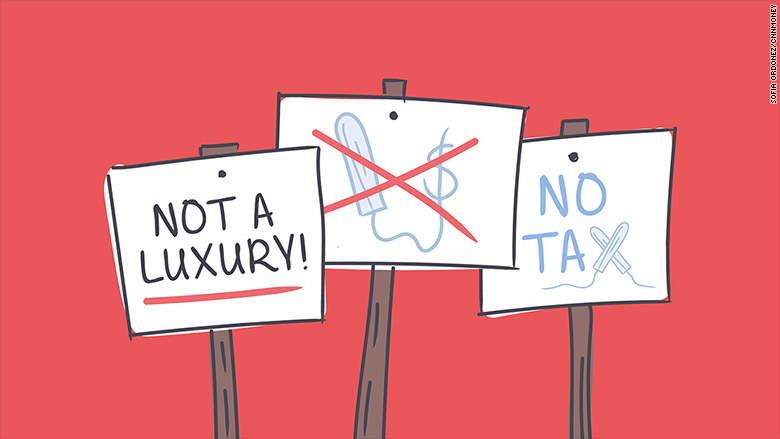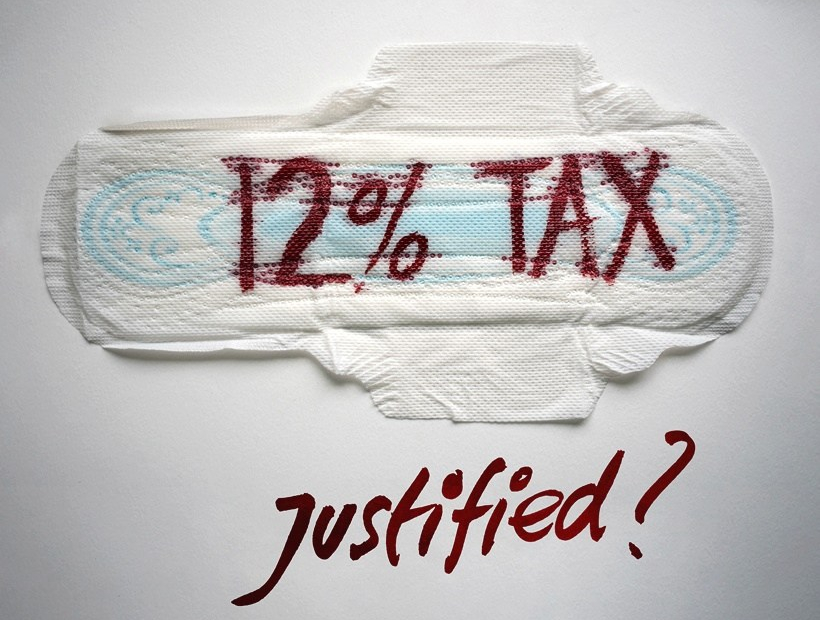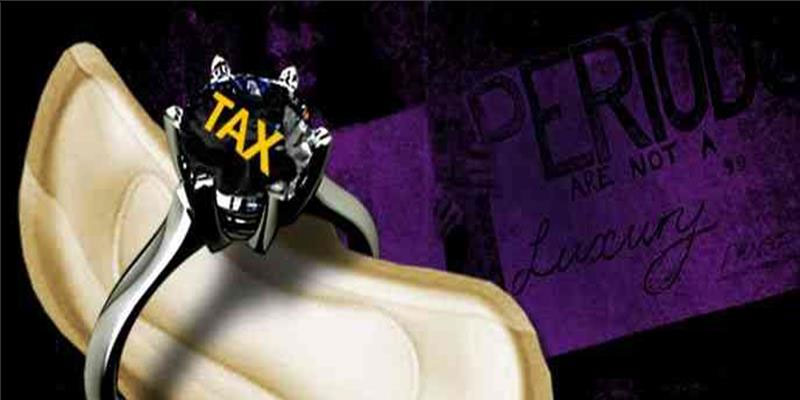Half the population in the world needs sanitary napkins for a week every month for atleast 30-35 years of their life. It is a necessity, not a luxury. It is not a choice to get periods every month, it’s how our bodies have been designed. It is very alarming that only 12% of India’s 335 million adult women can afford sanitary pads. Then why the Indian government thinks that this is a luxury and levies a newly formed GST of 12% on sanitary napkins making them unaffordable?
Instead of breaking the taboo around the usage of sanitary napkins, this move by the government has made them more unapproachable. Because of the inadequate protection during menstruation in the villages, small towns and cities, adolescent girls miss 5 days of school every month totalling to approximately 50 days a year.
The fact of the matter is that before GST, sanitary napkins had a tax of 13%. Earlier, there were speculations that sanitary napkins might become tax-free under GST. However, after the announcement of GST of 12%, many NGOs expressed their concern.
 (image: www.cnn.com)
(image: www.cnn.com)
In urban markets, a lot of companies are now making and selling cloth napkins in the name of sustainability and eco-friendliness. Although, they still have a long road ahead to be accepted as a norm with the millennial women owing to hygiene, maintenance and ease of use during office hours. Another product that is trying to bring a revolution in the menstruation protection is menstruation cup. The cup is designed in a way that the user has to insert it in the vagina so that the blood gets collected in the cup. These cups have to be emptied and cleaned from time to time. Sounds like an effort? Well, maybe or maybe not!
 (image: www.indiatoday.com)
(image: www.indiatoday.com)
Let’s take a look at the “Tampon Tax” paid in few of the countries in the world:
Australia – In Australia, sanitary products attract the 10% Goods and Services tax (GST).
UK – In UK, 5% VAT is applicable on sanitary products
USA – In the US, it varies between states. States that place sales tax on tampons and other sanitary products include California, New York and Wisconsin. States where feminine hygiene products are exempted include Maine, Pennsylvania and New Jersey.
As much as the high price of sanitary napkins is a concern, distribution also something to think about. However, the picture isn’t that bad.
We know that in rural India, most prevalent means of protection during periods is cloth napkin. However, a recent survey conducted in 2015-16 by NFHS (National Family Health Survey) gives a bright and better picture. As per the survey, the number of women using hygienic means of managing menstruation in India is at 78% in urban areas, 48% in rural areas and 58% overall.
Today, nearly 6 out of 10 women in India have access to disposable sanitary napkins. According to this survey, locally prepared napkins, sanitary napkins and tampons are considered as hygienic methods of protection. These numbers look promising and show a better picture of our society accepting and using more hygienic means of protection during periods.
 (image: www.indialivetoday.com)
(image: www.indialivetoday.com)
Now a very pertinent question arises, why a thing of necessity is included under the category of luxury items? According to SheSays India, an NGO that has taken an initiative of approaching and requesting the government for reducing the GST states that merely 12% of India’s total female population has access to sanitary napkins. Which means, the remaining 88% women are either surviving on the traditional methods or have no access to any such means of protection during menstruation. Maybe it’s this disparity that makes sanitary napkins look like a luxury item when they are an inevitable necessity.
The unavoidable expense attached to the menstrual hygiene products is as unavoidable as the menstruation itself. Lethargy, immense pain, and decreased productivity are some facets of menstruation, but when women and girls are subjected to unhygienic period health and disposal practices, they’re also subjected to the perils of cervical cancer and Urinary or Reproductive Tract Infections.
If condoms can be made tax free, then why not sanitary napkins and tampons?

Sex is a choice, periods are not! Period.
This blog is a part of a blog-train written on several topics pertaining to Women Health and Wellness. The next blog in this series will be written by Shalu who blogs at The Dreamer Mum. Follow her on Facebook, Twitter and Instagram for some interesting and informative brew.
xo
-Pretty Mumma

